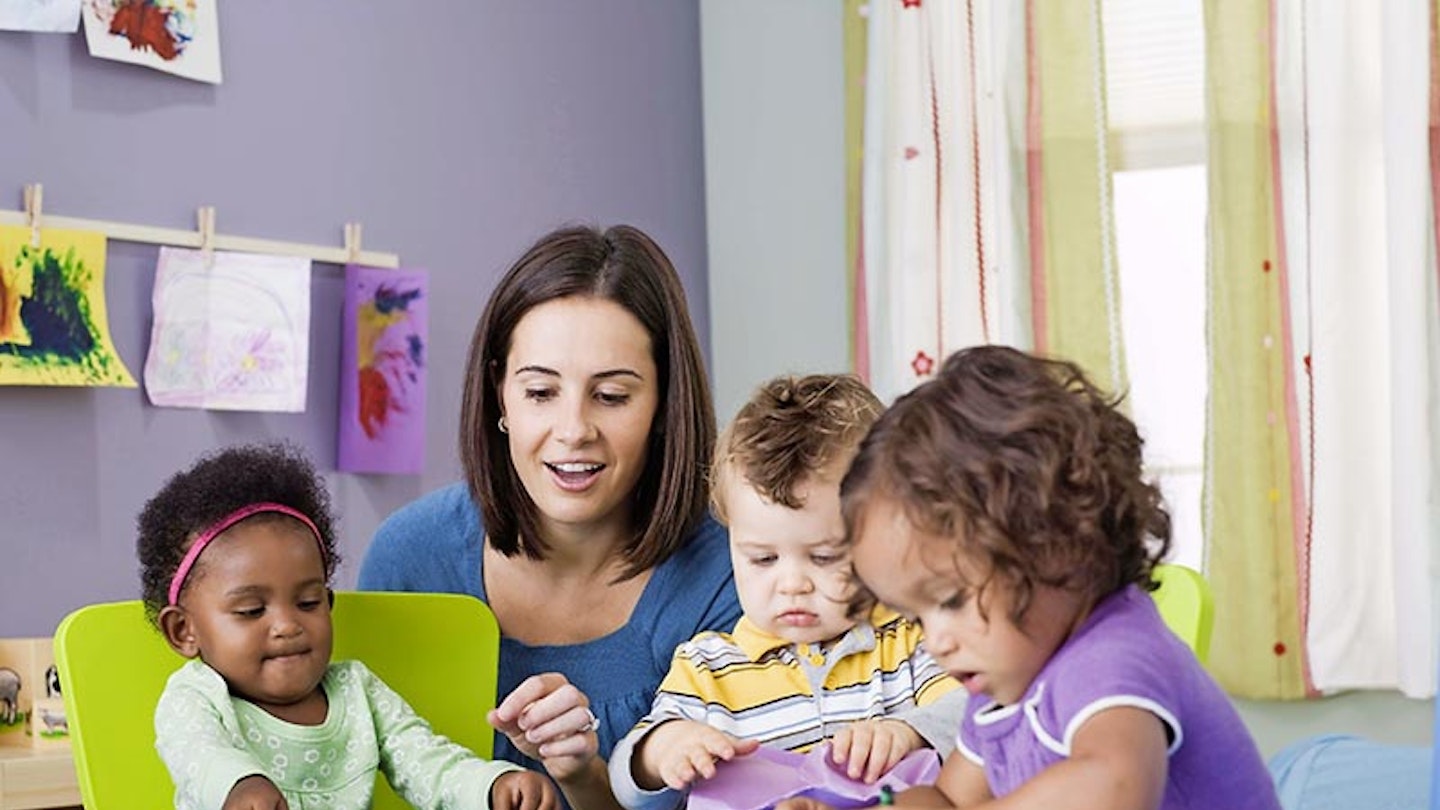If your baby likes being with a few other children and feels more settled in a home environment, a childminder is ideal.
And a childminder will often be able to offer you the flexibility you need. Often, parents find out when applying for nurseries that they are unable to provide this level of flexibility. Working from home, and caring for children under the age of eight for more than two hours a day, childminders are often mothers who have been, or currently are, bringing up their own children.
They are regulated and given guidance on their behaviour and the facilities they offer. They follow the Early Years Foundation Stage (EYFS) programme.
Because a childminder has a great deal of choice in the way she looks after your child, it’s essential you get to know her well first to decide if you’re happy to use her.
For example, she may be knowledgeable about nutrition and provide the food you’d want for your child, but her opinions on the amount of time she will spend reading with him may differ from yours.
She may be creative and spend a great deal of time painting and crafting with your child, but another childminder may take him to more clubs and activities.
Childminders are usually self-employed and decide their own working conditions, hours, pay and the activities they will undertake.
Although most will provide care 8am-6pm, Monday to Friday, some may work earlier or later by negotiation. But she’s likely to be already looking after other children, so she may be limited in how flexible she can be if you request extra or different hours.
It’s also wise to check if she is able to provide any childcare cover when she goes on holiday, and whether she works at all during school holidays.
Wherever possible, enter a written contract that outlines the services offered and the charges.
Most childminders charge an hourly rate but you’ll need to negotiate what happens, for example, if she drops your child at your parents’ for a couple of hours then picks him up again. You’ll need to agree when you pay her, how, and what the fee includes.
How much will a childminder cost?
According to the Childcare and Early Years Provider Survey, the average cost for the provision of care for a child under two years is £127 for 25 hours a week.
How to find a great childminder
-
What will your child’s routine be?
-
Will there regularly be any other adults in the home?
-
Is there access to a safe outside area?
-
How many other children does she look after, including her own, and what are their ages?
-
Ask for a reference from at least three parents. At least one of these should be from a parent who doesn’t now use her services.
-
What is her view on behaviour management, including potty training, table manners, sharing, eating sweets and watching TV? Do her views match those of the parents of the other children she looks after?
-
What does her rate include? Some childminders charge a modest hourly rate, but charge extra for food, entertainment and activities. Others have a higher rate, but only charge more for exceptional extras, such as trips to the zoo.
-
What happens when your child is sick or when you’re away on holiday? Some childminders still charge, some charge a retainer and some waive the charge for planned absences.
-
Check her registration certificate and insurance for home contents, public liability and car insurance (if she will be driving your child).
Find childminders in your area at childcare.co.uk
